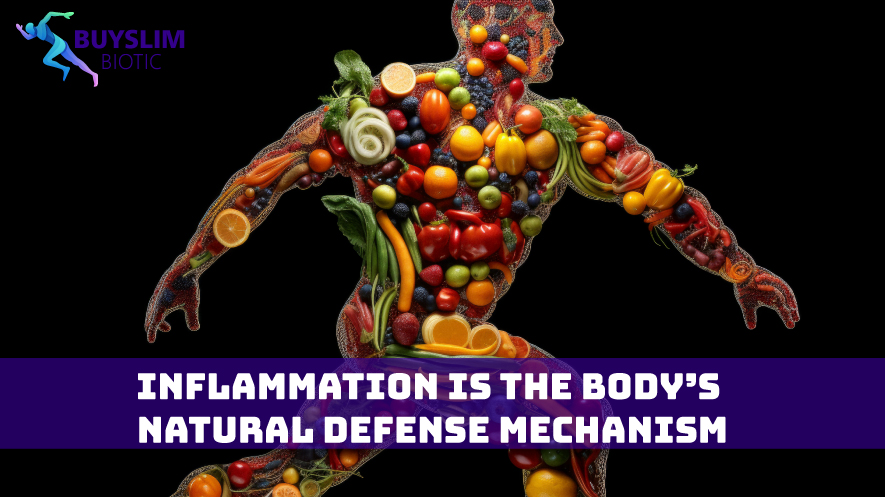If you’re looking to reduce inflammation in your body, an anti-inflammatory diet is the way to go. This includes filling up on fruits, vegetables, whole grains, legumes, nuts and fish that contain anti-inflammatory compounds.
This diet also limits foods that can cause inflammation such as processed meats and sugary drinks.
Inflammation is the body’s natural defense mechanism.
Inflammation is the body’s natural response to infection or injury. It sends white blood cells to the site of an injury, and releases chemicals that help to heal the damaged tissue. But when this process is out of control, it can lead to a wide range of health conditions including heart disease, diabetes and cancer.
Some foods may trigger or worsen inflammation, while others contain compounds that can reduce it. An anti-inflammatory diet focuses on foods that are high in antioxidants, which can neutralize free radicals that cause damage to the body’s healthy cells and tissues. It also aims to limit processed foods, which are rich in chemicals that promote inflammation.
Most anti-inflammatory diets are based on whole, nutrient-dense foods that are rich in antioxidants and phytochemicals. These include fruits, vegetables, nuts and seeds, beans, whole grains, and seafood. The best sources of omega-3 fatty acids, which can reduce inflammation, are oily fish like salmon, trout, and sardines. The average anti-inflammatory diet is low in saturated fat and trans fats, and contains moderate amounts of protein.
In addition to changing your diet, there are a few other things that can help reduce inflammation in the body. These include getting enough sleep, staying hydrated, avoiding alcoholic beverages and exercising regularly. If you’re concerned about the impact of your diet on inflammation, talk to a doctor or registered dietitian for more guidance.
Getting started with an anti-inflammatory diet isn’t easy, especially if you’re used to eating a more carb-heavy or processed food-based diet. Start by replacing processed snacks and desserts with fruits, veggies and nuts, and opting for water instead of soda and other sugary drinks. You can also consider talking to a healthcare professional about adding supplements to your daily routine, such as cod liver oil or a multivitamin.

It’s also the body’s way of repairing damaged cells.
Inflammation helps to protect us by fighting off infections, increasing blood flow to places that need healing and signaling us through pain that something is wrong. However, if it becomes chronic and isn’t managed properly, inflammation can cause disease. Unhealthy inflammation is associated with a number of diseases including rheumatoid arthritis, scleroderma and lupus.
A diet rich in anti-inflammatory foods can help to keep levels of inflammation low and support the body’s natural healing processes. The diet can also be beneficial in reducing the risk of many inflammatory health conditions including cardiovascular disease, certain cancers and cognitive decline.
An anti-inflammatory diet typically focuses on fruits, vegetables, whole grains, nuts and fish and minimizes processed and red meats. It is important to note that there is no one-size-fits-all anti-inflammatory diet and that everyone’s inflammatory triggers are different.
Foods that are high in anti-inflammatory compounds include berries, broccoli, Brussels sprouts, squash and sweet potatoes, olive oil, avocados and dark leafy greens. These foods contain phytochemicals that act as antioxidants and are packed with vitamins, minerals and fiber. They are also full of anti-inflammatory fats, such as omega-3 fatty acids, which help to balance the pro-inflammatory omega-6 fatty acids in the body.
Aside from eating a diet rich in anti-inflammatory foods, other lifestyle changes can also be helpful for reducing inflammation. This includes getting regular exercise, managing stress and sleeping well. It is also recommended to avoid smoking and limit alcohol consumption as these factors can increase inflammation.
The best way to lower your inflammation is by following an anti-inflammatory diet and making healthy lifestyle choices. This can include:
Eating a nutrient-dense diet that prioritizes whole fruits, vegetables, whole grains and unsaturated fats, while limiting processed foods, alcohol and red meat. Aim to fill half your plate with colorful vegetables and a quarter with a lean protein at each meal. Try to avoid sugary drinks and opt for water or unsweetened iced tea instead, and get 30 minutes of exercise daily. Talk to a primary care provider or registered dietitian for more information about a healthy eating plan and how it can benefit your health.
It’s the body’s way of fighting infections.
While inflammation is usually considered a negative thing, it can be helpful in certain situations. For example, when you cut your finger or have a throat infection, the body initiates an inflammatory response that fights off foreign invaders and heals tissues. However, inflammation can also play a role in chronic diseases like heart disease, diabetes and arthritis. It has been found that many of these conditions are triggered by an excessive inflammation response. Therefore, it is important to take steps to reduce the amount of inflammation you experience through your diet.
Many different health foods and supplements claim to decrease inflammation, but the best way to control inflammation is by changing your overall diet. A healthy anti-inflammatory diet is based on whole foods, such as fresh fruits and vegetables, nuts, fish and lean meats. Avoiding processed foods, sugary drinks and alcohol can also help you to lower your inflammation levels.
An anti-inflammatory diet should be primarily based on whole, nutrient-dense foods that contain antioxidants, which are molecules that can help to reduce inflammation by lowering the number of free radicals in the body. An ideal diet contains a variety of fresh fruits and vegetables, as well as fatty fish, nuts, legumes and whole grains. Avoid consuming foods that are high in saturated fats and trans-fats, as they can increase inflammation levels.
Several studies have found that a diet rich in omega-3 fatty acids, as well as other antioxidants, can significantly decrease inflammation levels. These dietary changes can also help to reduce the risk of chronic diseases, such as cardiovascular disease, cancer and neurodegenerative disorders.
If you are interested in trying out an anti-inflammatory diet, talk to your doctor or dietitian. They can recommend a diet plan that will suit your individual needs, based on the amount of inflammation you experience. In addition to following a healthy diet, other lifestyle factors can also help you to reduce inflammation, such as getting enough sleep and exercise, smoking cessation and stress reduction.
It’s the body’s way of preparing food.
Inflammation is one of the body’s natural ways to protect itself. It helps fight infections, increases blood flow to areas that need healing and signals us, through pain, when something is wrong. But when inflammation levels are too high, or if we remain in an inflammation state for too long (have chronic inflammation), it can lead to disease. Some diseases associated with unhealthy inflammation include rheumatoid arthritis, scleroderma and lupus.
An anti-inflammatory diet emphasizes whole foods, which are minimally processed and don’t contain added sugars or salt. Aim for a rainbow of fruits and vegetables, whole grains, nuts and seeds, legumes and fish. It also limits saturated fats, which may promote inflammation. Instead, try using olive, canola or avocado oils for cooking.
Other ingredients in an anti-inflammatory diet that may be beneficial include fermented foods like sauerkraut and kimchi, which contain probiotics; dark chocolate, which contains flavonoids; and herbs and spices, which have been shown to have some anti-inflammatory properties. The diet may also include fatty fish such as salmon and tuna to get the omega-3 fatty acids that help reduce inflammation.
While not everyone suffers from inflammatory conditions, most can benefit from eating an anti-inflammatory diet. It is generally healthy for the body and can improve blood sugar control, provide adequate dietary fibre, promote beneficial fats, supply lean protein and provide protective plant compounds. It can even reduce the risk of some chronic diseases, including heart disease, diabetes and cancers. It’s important to make the necessary changes slowly and be consistent for the best results.





